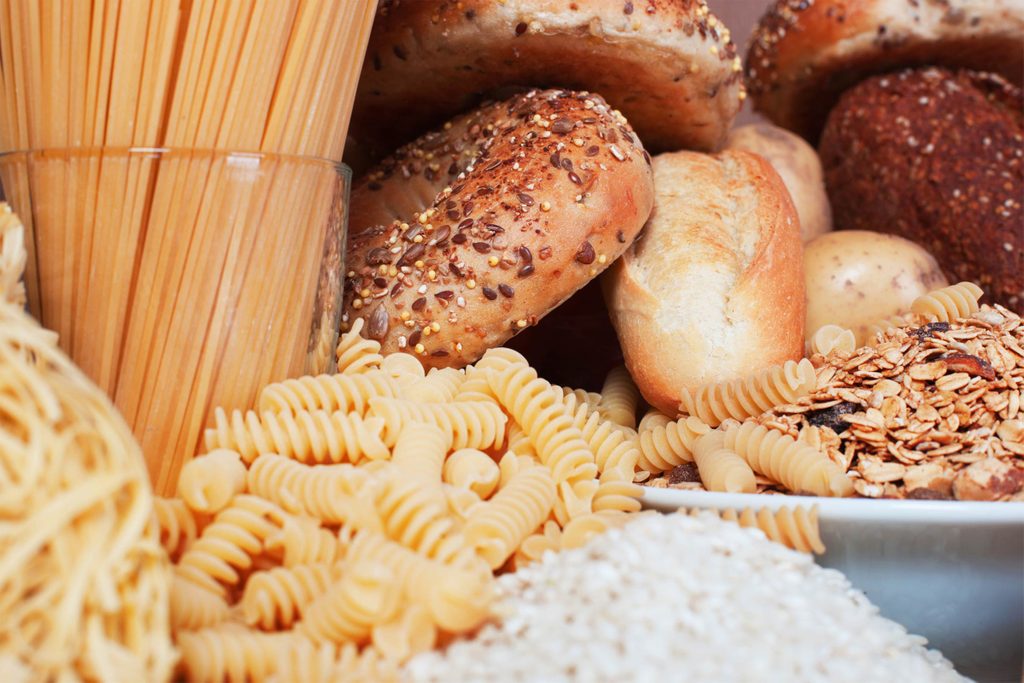Meet Resistant Starch, the Good Carb You Need to Eat More
Updated: Feb. 09, 2017
Wait a minute, starch is good for you?

Starch has earned itself a bad reputation as the carbohydrate that puts on the pounds and shoots your blood sugar through the roof. But, surprisingly, carb lovers can reap many health benefits from something called resistant starch, which is a “good carb.” (Here are more good carbs nutritionists want you to eat.) “It doesn’t cause your blood glucose to spike, helps with blood cholesterol levels, and makes you feel full and satisfied,” says Lisa Sasson, MS, clinical assistant professor of nutrition at NYU Steinhardt in New York City.
You’ve heard all about carb-free diets, so it may sound crazy that a carb can help you lose weight, stabilize your blood sugar, and possibly reduce your risk of cancer, but it’s true and the reason is simple. Unlike most starches, resistant starch (found in slow cooked oats, quinoa, and peas) skips your small intestine and heads straight for the colon where it’s converted into energy instead of fat, which can help you lose weight. “We have enzymes that readily cleave off starch into simple sugars,” says Connie Weaver, PhD, distinguished professor in nutrition science at Purdue University in West Lafayette, Indiana. But we lack the enzymes needed to link onto resistant starch to absorb it, thus, it passes right on through to the large intestine.”
A decline in blood sugar spikes is another added benefit to this slow-digesting carbohydrate because the glucose never gets digested and broken down into sugar, which enters your blood stream. Therefore, you won’t suffer from a sugar crash that has you feeling sluggish.
Resistant starches from beans, whole grains, and potatoes may even help prevent colon cancer or inflammatory bowel diseases, though more research needs to be done. In one small study, researchers split 23 people into two groups; one group ate 0.6 pounds of red meat every day for four weeks, and the other group at the same amount of meat along with a resistant starch. Those who ate only red meat had an increase in microRNA molecules (genetic material) found in their rectal tissue, which is linked to colon cancer, compared to the resistant starch group, which saw no increase. Some researchers think that resistant starch’s powerful ability to modify our gut bacteria may have something to do with cancer risk reduction.
Diets high in red meat have been linked to bad gut bacteria changes and inflammation, which often cause colon cancer. But it appears that resistant starch may be able to reverse these effects because it acts like dietary fiber. Resistant starch is a great source of short-chain fatty acids that help keep your colon healthy since it’s easily metabolized in your gut. “It appears that all sorts of non-digestible carbs can promote a healthy gut microbiome and increase diversification of the gut microbiome,” says Dr. Weaver. “If you increase diversification, it’s associated with a healthier body weight and lower resistance to chronic diseases like diabetes.”
You can increase the amount of resistant starch in legumes, whole grains, slow cooked oats, al dente pasta, and even unripe bananas by eating raw or boiling and then cooling. According to Sasson, although heat and boiling water greatly reduces the amount of healthy resistant starch in a food, if you let the food cool resistant starch levels will rise again.
Currently, there are no recommendations for how much resistant starch you should eat every day, but it’s not a bad idea (or very hard) to incorporate a little more into your diet. Try swapping one bad food for a healthier one rich in this starch. “Once you’re eating healthier, you start to feel a little better,” says Sasson. “Adding beans doesn’t make you lose weight but substituting it in place of something unhealthy does.” Try eating hummus and vegetables for a snack, a bean-based soup for lunch, or adding a baked potato to your meal sans the salt and butter. And ignore these myths about carbs that could be wrecking your health.